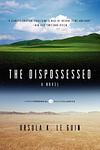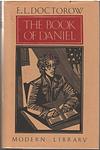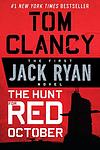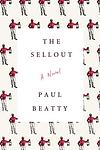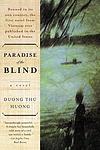The Greatest "Political, Fiction" Books Since 1950
Click to learn how this list is calculated.
This list represents a comprehensive and trusted collection of the greatest books. Developed through a specialized algorithm, it brings together 300 'best of' book lists to form a definitive guide to the world's most acclaimed books. For those interested in how these books are chosen, additional details can be found on the rankings page.
Genres
The "Political" category of books encompasses works that explore the theory, practice, and history of government and politics. These books may cover topics such as political ideologies, political systems, political institutions, political movements, and political leaders. They may also examine the relationship between politics and other areas of society, such as economics, culture, and international relations. Political books can be both informative and thought-provoking, offering readers insights into the complexities of the political world and the challenges of governing in a democratic society.
Countries
Date Range
Reading Statistics
Click the button below to see how many of these books you've read!
Download
If you're interested in downloading this list as a CSV file for use in a spreadsheet application, you can easily do so by clicking the button below. Please note that to ensure a manageable file size and faster download, the CSV will include details for only the first 500 books.
Download-
26. The Line of Beauty by Alan Hollinghurst
Set in the 1980s during the era of Margaret Thatcher's conservative government in Britain, this novel follows the life of a young gay man named Nick Guest. Coming from a middle-class background, he moves into the home of his wealthy friend's family and becomes infatuated with the opulence and power of the upper class. As he navigates his way through this new world, he also explores his sexuality, all while dealing with the societal and political implications of the AIDS crisis.
-
27. The Dispossessed by Ursula K. Le Guin
The novel is a profound exploration of two vastly different societies on twin planets, Urras and Anarres. The protagonist is a brilliant physicist from Anarres, a planet with an anarchist society, who travels to Urras, a planet with a capitalist and authoritarian regime. The book explores his struggle to reconcile his anarchist beliefs with the stark realities of a different socio-political system. It's a thought-provoking investigation of human nature, power structures, and the idea of utopia.
-
28. The Book of Daniel by E. L. Doctorow
"The Book of Daniel" is a semi-fictional novel that explores the lives of the Isaacson family, specifically focusing on the children, Daniel and Susan, after their parents, accused of being Communists, are executed. The narrative is a combination of historical fiction and a political commentary, providing a deep exploration of the Red Scare in the United States during the Cold War era. The novel is a critical examination of social, political, and familial dynamics in a time of national fear and paranoia.
-
29. The Hunt for Red October by Tom Clancy
This novel details the story of a high-ranking Russian submarine captain who aims to defect to the United States without sparking a war between the two nations. The American government, upon receiving information about the captain's intentions, sends its best analyst to aid in the successful defection of the captain and his crew. The novel is a thrilling tale of espionage, filled with suspense and detailed technical descriptions of military technology and procedure.
-
30. Our Man In Havana by Graham Greene
The book is a satirical espionage novel set in pre-revolutionary Cuba, where a hapless vacuum cleaner salesman is recruited by British intelligence to serve as their operative in Havana. Despite his lack of experience and qualifications, he fabricates intelligence reports to appease his superiors, inadvertently triggering a cascade of increasingly absurd and dangerous events. As the line between fiction and reality blurs, the protagonist finds himself entangled in a web of deception and political intrigue that satirizes the absurdities of the Cold War era and the follies of intelligence agencies.
-
31. Burger's Daughter by Nadine Gordimer
"Burger's Daughter" is a novel centered around Rosa Burger, a white woman in South Africa during the apartheid era. The narrative delves into Rosa's life and struggle to find her identity, while also dealing with the legacy of her parents who were anti-apartheid activists. This story provides a deep look into the political and social climate of South Africa during a time of racial segregation and oppression.
-
32. Memed, My Hawk by Yashar Kemal
"Memed, My Hawk" is a novel set in the harsh and lawless rural Turkey of the 1920s. It follows the story of a young boy, Memed, who becomes an outlaw and a local hero after standing up to the corrupt authorities and feudal landlords who oppress his village. The novel explores themes of love, revenge, and social justice, and is a powerful indictment of the social and economic conditions of rural Turkey in the early 20th century.
-
33. Cancer Ward by Aleksandr Solzhenitsyn
"Cancer Ward" is a poignant novel set in a Soviet cancer hospital in the mid-1950s. It follows the lives and struggles of patients and doctors, exploring their personal histories, relationships, and the political environment of the time. The hospital serves as a metaphor for the oppressive Soviet state, with cancer symbolizing the malignant growth of totalitarianism. The book also explores themes of mortality, the human spirit, and the will to survive.
-
34. The Plot Against America by Philip Roth
This novel presents an alternate history where aviator-hero and rabid isolationist Charles Lindbergh is elected President in 1940, leading the United States towards fascism and anti-Semitism. The story is narrated through the perspective of a working-class Jewish family in Newark, New Jersey, experiencing the political shift and its terrifying consequences. The narrative explores themes of prejudice, fear, patriotism, and family bonds under the shadow of a fascist regime.
-
35. The Lost Honour of Katharina Blum by Heinrich Böll
"The Lost Honour of Katharina Blum" is a story about a young woman who becomes the target of a media smear campaign after she falls in love with a man who is suspected of being a political radical. The media's relentless invasion of her privacy and the negative portrayal of her character lead to tragic consequences, highlighting the destructive power of sensationalist journalism. The novel is also a critique of the political climate in Germany during the 1970s.
-
36. The Labyrinth of Solitude by Octavio Paz
This book is a profound and vivid exploration of Mexico's character, culture, and identity. The author delves into Mexico's history, politics, and psyche, examining the country's deep solitude and its impact on the national character. The book provides a comprehensive analysis of Mexican society, its myths, symbols, and rituals, offering a deep understanding of the Mexican people's unique way of perceiving the world. It also discusses the influence of the United States on Mexico and the complex relationship between the two countries.
-
37. The Sellout by Paul Beatty
This satirical novel follows the story of an African-American man living in a small, agrarian town on the outskirts of Los Angeles. After his father's death, he attempts to reinstate slavery and segregation in his town as a means of creating a sense of identity for himself and his community. The novel explores themes of racial identity and equality in America, challenging societal norms and expectations through its provocative narrative.
-
38. The Manchurian Candidate by Richard Condon
The novel is a political thriller that delves into the dark world of espionage and brainwashing during the Cold War. It follows the story of a former prisoner of war who, upon returning to the United States, is hailed as a war hero. Unbeknownst to him and the public, he has been programmed by a foreign power to be an unwitting assassin. His conditioning is triggered by a complex set of stimuli, and he is directed to carry out a high-profile political assassination that could alter the course of history. As the plot unfolds, a fellow soldier begins to unravel the conspiracy, racing against time to prevent the programmed soldier from executing his deadly mission, which is orchestrated by a Communist conspiracy aiming to seize control of the American government.
-
39. What a Carve Up! by Jonathan Coe
This satirical novel follows the story of the Winshaw family, a wealthy and corrupt British family who have a significant influence on British society in fields such as politics, business, media, and the arts. The narrative is presented through the eyes of a commissioned biographer who is trying to make sense of the family's history and their impact on society. As he delves deeper into the family's affairs, he uncovers dark secrets and becomes entangled in a complex web of deceit and murder.
-
40. Conversation in the Cathedral by Mario Vargas Llosa
Set in mid-20th century Peru, "Conversation in the Cathedral" is a complex narrative that explores the corruption, decay, and turmoil of the society under the dictatorial rule of Manuel A. Odria. The story mainly revolves around two characters - a wealthy newspaper owner's son and his family's former chauffeur. Their chance meeting leads to a lengthy conversation that unravels the intricate web of political and personal corruption, disillusionment, and lost dreams in their lives and in their country. The novel is a profound examination of the power dynamics, societal decay, and the human condition in a politically oppressive environment.
-
41. The Sympathizer by Viet Thanh Nguyen
"The Sympathizer" is a gripping spy novel set during the Vietnam War. The protagonist is a half-French, half-Vietnamese army captain who is a communist double agent. After the Fall of Saigon, he moves to America with other South Vietnamese refugees and struggles to reconcile his dual loyalties as he continues to spy on his fellow countrymen in exile. The novel explores themes of identity, war, and politics, while providing a unique perspective on the Vietnam War and its aftermath.
-
42. The Time of the Hero by Mario Vargas Llosa
"The Time of the Hero" is a novel set in a military academy in Lima, Peru, where a group of cadets try to maintain their individuality and resist the dehumanizing military routine. The story revolves around a stolen exam paper, the ensuing investigation, and the brutal fallout. The novel explores themes of power, corruption, and the struggle for identity within a rigid and oppressive system, offering a critical look at the military institution and its effects on society.
-
43. Snow by Orhan Pamuk
Set in the small city of Kars in northeastern Turkey, the novel follows a Turkish poet who has spent several years in political exile in Germany. He returns to Turkey during a time of political unrest, with tensions high between religious and secular factions. As he becomes embroiled in the turmoil, he also becomes involved in a romantic relationship with a beautiful woman. The city is cut off from the rest of the world by a relentless snowstorm, leading to a series of tragic events. The novel is a contemplation on love, faith, and the tensions between tradition and modernity.
-
44. A Tomb for Boris Davidovich by Danilo Kiš
"A Tomb for Boris Davidovich" is a collection of seven short stories exploring the nature of political and personal identity, primarily in Eastern Europe during the 20th century. The stories are interconnected, each focusing on a different character who is caught up in the political turmoil of the time, often meeting tragic ends. The book is known for its exploration of totalitarianism, the nature of identity, and the power of the state over the individual.
-
45. The Joke by Milan Kundera
"The Joke" follows the life of Ludvik Jahn, a man expelled from the Czechoslovak Communist Party, his university, and the army for a harmless joke he sends in a postcard to a girlfriend. The narrative explores his life before, during, and after his punishment, and his attempts to exact revenge on those who wronged him. Set against the backdrop of the Prague Spring and the Soviet Invasion, the novel delves into the themes of political satire, the absurdity of totalitarianism, and the individual's struggle against an impersonal and oppressive system.
-
46. Paradise of the Blind by Dương Thu Hương
"Paradise of the Blind" is a poignant tale of a young Vietnamese woman's journey through life amidst the socio-political upheavals of her country. The narrative follows her struggle to reconcile her familial duties with her own personal aspirations, as she navigates through the complexities of her relationships with her mother and aunt. The book provides a critical examination of the Communist regime in Vietnam, its impact on the traditional Vietnamese family structure, and the cultural and societal changes it brought about.
-
47. On Beauty by Zadie Smith
This novel is a contemporary, multicultural exploration of family life, love, and identity. It follows the lives of two mixed-race families, the Belseys and the Kipps, who are linked by their shared professions in academia and a complex web of marital and extramarital relationships. The story is set against the backdrop of Wellington, a fictional New England town, and explores themes of race, class, and cultural clash. It also delves into the world of academia, examining the politics and conflicts that arise in that environment.
-
48. Libra by Don DeLillo
This novel is a fictionalized account of the life of Lee Harvey Oswald, the assassin of President John F. Kennedy. It explores Oswald's troubled childhood, his time in the Soviet Union, his return to America, and his involvement in a conspiracy to assassinate the president. The story is told from multiple perspectives, including that of Oswald himself, his mother, and various fictional characters, creating a complex and nuanced portrait of a man who has become a symbol of one of the most traumatic events in American history.
-
49. The White Tiger by Aravind Adiga
"The White Tiger" is a darkly humorous novel set in modern-day India that explores the country's class struggle through the eyes of an ambitious and cunning protagonist. Born in a poor village, he moves to Delhi to work as a chauffeur for a rich family. He eventually breaks free from his life of servitude by committing an act of shocking violence, and uses his newfound freedom to become a successful entrepreneur in Bangalore. The story, told through a series of letters written to the Chinese Premier, is a scathing critique of India's social and economic disparities, and the corruption that permeates all levels of society.
-
50. Z by Vassilis Vassilikos
"Z" is a political novel that explores the events surrounding the assassination of a prominent leftist politician in Greece. The story delves into the corruption and violence that pervades the government, with the narrative alternating between the perspectives of the victim, the assassins, the investigators, and the government officials involved. The novel is a critique of political tyranny and an exploration of the struggle for justice in a corrupt system.
Reading Statistics
Click the button below to see how many of these books you've read!
Download
If you're interested in downloading this list as a CSV file for use in a spreadsheet application, you can easily do so by clicking the button below. Please note that to ensure a manageable file size and faster download, the CSV will include details for only the first 500 books.
Download
